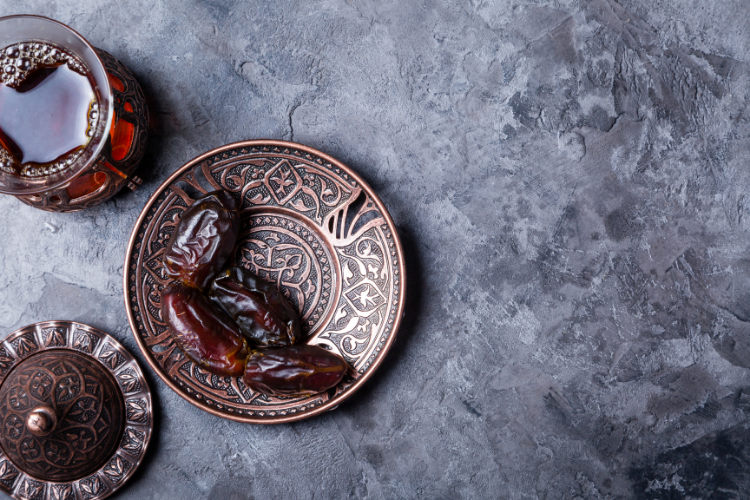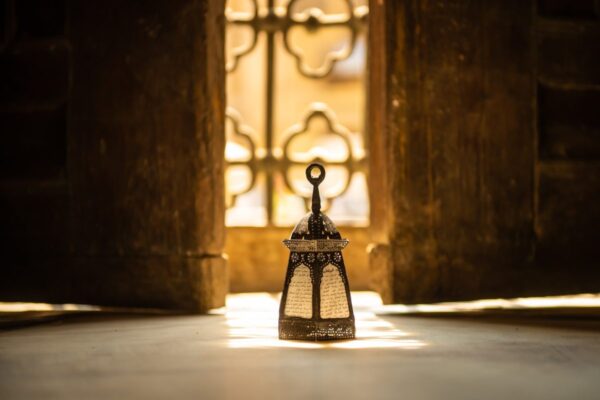Muslims fast for a month every year. This beautiful period is called Ramadan and there are things that you as a Muslim should take into account during fasting. But why do Muslims fast, do you have to fast as a Muslim and what are the benefits of fasting? Keep on reading to to find out.
Contents
What is Ramadan?
It is important to first find out exactly what Ramadan is. Ramadan is the 9th month in the Islamic calendar, which begins with the sighting of the crescent moon. The Gregorian calendar is based on the sun while the Islamic calendar focuses on the moon. When Ramadan starts can therefore differ depending on where you live. The fast lasts from sunrise to sunset. After the last prayer you end the evening with a glass of milk and a date. During Ramadan you reform yourself according to Islam, by immersing yourself in the Quran, by praying more or by sharing with your loved ones who are less fortunate.
Why do Muslims fast?
Fasting is one of the five pillars of Islam. These are five religious obligations that form a large part of the Muslim community. While fasting, you should not have sexual relations, smoke, lie, curse, and eat or drink.
All this is to obtain Taqwa. In the Qur’an it says that peoples before us also fasted, but that the difference is Taqwa. Taqwa is the realization that God sees everything. This ensures you have control over yourself and you do not let your lusts take its course.
Fasting is obligatory for every Muslim except some individual such as sick people and pregnant women. In addition, you become aware of your actions and by fasting you protect yourself from sins. You will be reminded of your religious obligations and make time during Ramadan for self-reflection and contemplation by reading the Quran in its entirety. According to the Muslims, fasting is the will of Allah. Because you hardly eat during the fast and suffer from hunger, you learn the value of food and drink and you can deal with this more consciously and think about what you eat in the future. Also read: Fasting is a shield
The benefits of fasting
Fasting brings the following many benefits to humanity and the entire Muslim community that participates in it:
- Spiritual growth is stimulated as you surrender yourself completely to Allah’s will.
- By fasting you become aware that as a human being you are weak and dependent on Allah to provide basic needs such as food and drink.
- People with a generous budget will experience how people who are on a tight budget live and the value of food and drink. This leads to social cohesion as the rich and the poor can form a better bond with each other thanks to fasting.
- Fasting promotes social interaction between Muslims.
- Fasting allows you to train your own willpower so that you can better manage your needs.
- You create healthier eating habits that help you avoid serious health illnesses that result from eating wrong or too much food.
Also read:
- 7 benefits of the suhoor
- Fasting
Can you not eat anything at all?
You are not allowed to eat from sunrise to sunset. The number of hours that you can eat is therefore limited, making it important to eat well and healthy so that you can get through the next day without food and drink.
Breaking the fast (iftar)
Drink a few extra glasses of water and eat as much fiber as possible to delay your hunger. Eat whole grain, rice, couscous, potatoes, fruits, vegetables, low-fat dairy products, lean meat, fish, and brown bread. Finally, it is important not to eat too much and too quickly to avoid stomach problems.
Should every Muslim fast?
Yes, every able Muslim should fast. Fasting is obligatory for Muslims who are mentally and physically healthy, who are not travelling and who are already adults. This means that girls who have not yet had their period or boys who have not yet had their first ejaculation do not need to fast. Women who are not menstruating should also participate in the fast. If the woman is pregnant or breastfeeding, the woman does not have to fast at that time, but can choose to make up for it at another time. This also applies to the elderly or people who are seriously ill. Muslims who cannot fast for the above mentioned reasons should make up for it with alms. This is done by providing food for an organization, family, or person in financial distress.
The Eid celebration
Muslims put on beautiful clothes and celebrate with the whole family (also read: 19 tips for the family during Ramadan). A lot of sweets are eaten and people commemorate the beautiful lessons they learned during the fast.
Many already know that Muslims have a period when they fast, but not everyone is aware why the Muslims actually do this. The reason is to obtain Taqwa.
“O you who believe, fasting has been prescribed for you, as it was prescribed for those before you, that you may be righteous.”






